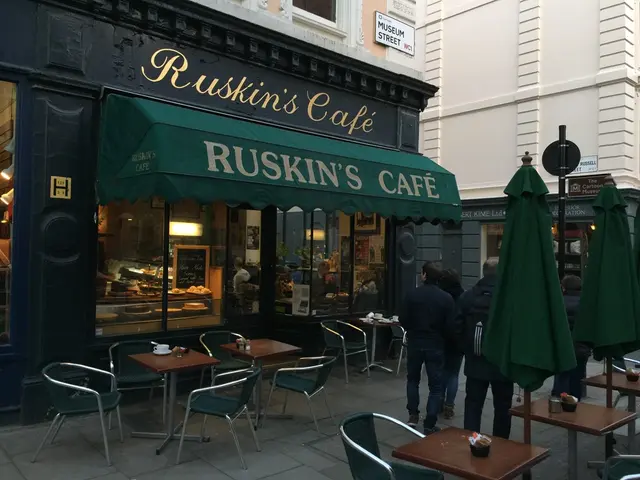German-Russian Trade Decreases Substantially in Influence - Germany's Reliance on Russian Trade Wanes Significantly
Let's take a frank and informative look at how Germany's trade with Russia has been on the decline.
A Blatant Drop in Trade Relations
The Russian Federation, while still a significant player in the global market, has been facing a steep decline in its trade dealings with Germany. Here's the raw data:- In 2021, imports from Russia amounted to a whopping 33.1 billion euros. Fast forward to 2024, and that figure dropped a staggering 94.6% to a mere 1.8 billion euros, according to the Federal Statistical Office in Wiesbaden.- Exports to Russia also saw a significant drop, with a value of 7.6 billion euros in 2024 - a whopping 71.6% decrease from the 2021 figure.
The EU's Collective Action Against Russia
The EU, including Germany, has been tightening the screws against Russia due to its ongoing aggression against Ukraine. The recent 17th sanctions package imposes further restrictions on the so-called Russian shadow fleet for the transport of oil and oil products, and extends export bans for goods related to industry or military. These measures have crippled Russia's access to capital and financial markets.
Russia's Slipping Rank in Germany's Trade Portfolio
Consequently, Russia's share in Germany's total imports fell to about 0.1% in 2024, down from a substantial 2.8% in 2021. Similarly, Russia's share of all goods exports from Germany dropped to 0.5% in 2024, down from 1.9% in 2021. As a result, Russia slipped to 59th place among Germany's most important supplier countries in 2024, down from a respectable 12th place in 2021. In exports, Russia was in 36th place last year, down from a prominent 15th place in 2021.
A Shift in Focus and Priorities
While Russia was still an essential energy supplier for Germany until the second half of 2022, its role has since diminished significantly. In 2024, Germany mainly imported metals and chemical products, food, and feed from Russia. In return, Germany mainly exported pharmaceutical and chemical products, as well as machinery. This shift in focus highlights Germany's efforts to diversify its trade portfolio amidst geopolitical tensions and economic challenges.
Factors Contributing to Decreased Trade
- International sanctions due to the Ukraine conflict have restricted Russia's ability to engage in trade with many countries, including Germany.
- Energy supply disruptions have led Germany to seek alternative sources of energy, impacting its trade with Russia significantly.
- Russia has reduced its imports, particularly in the energy sector, due to sanctions and the need to diversify energy sources.
- The global trade environment has become more protectionist and challenging, making it difficult for countries like Germany to maintain historical trade levels, especially with nations facing sanctions.
- Economic challenges in Germany, such as a decline in competitiveness and a shortage of skilled labor, have also contributed to decreased trade activity.
In conclusion, a complex interplay of geopolitical factors, economic challenges, and global trade dynamics has led to a significant decline in Germany's trade with Russia since 2021. It's a brave new world out there, and countries like Germany are navigating these challenges with determination and resilience.
- The steep decline in Germany's trade with Russia, as seen in 2024, is a result of international sanctions due to the Ukraine conflict, which have restricted Russia's ability to engage in trade with many countries, including Germany.
- The energy sector has been significantly impacted, with energy supply disruptions leading Germany to seek alternative sources of energy, further diminishing its trade with Russia.
- Without denying the role that Russia once played, Germany's trade with Russia has shifted focus on the importation of metals, chemical products, food, and feed, while the export of pharmaceutical, chemical, and machinery goods predominate in the current trade scenario.
- Amidst geopolitical tensions, economic challenges, and a more protectionist global trade environment, Germany is emphasizing diversification to maintain and grow their trade portfolio beyond Russia.








